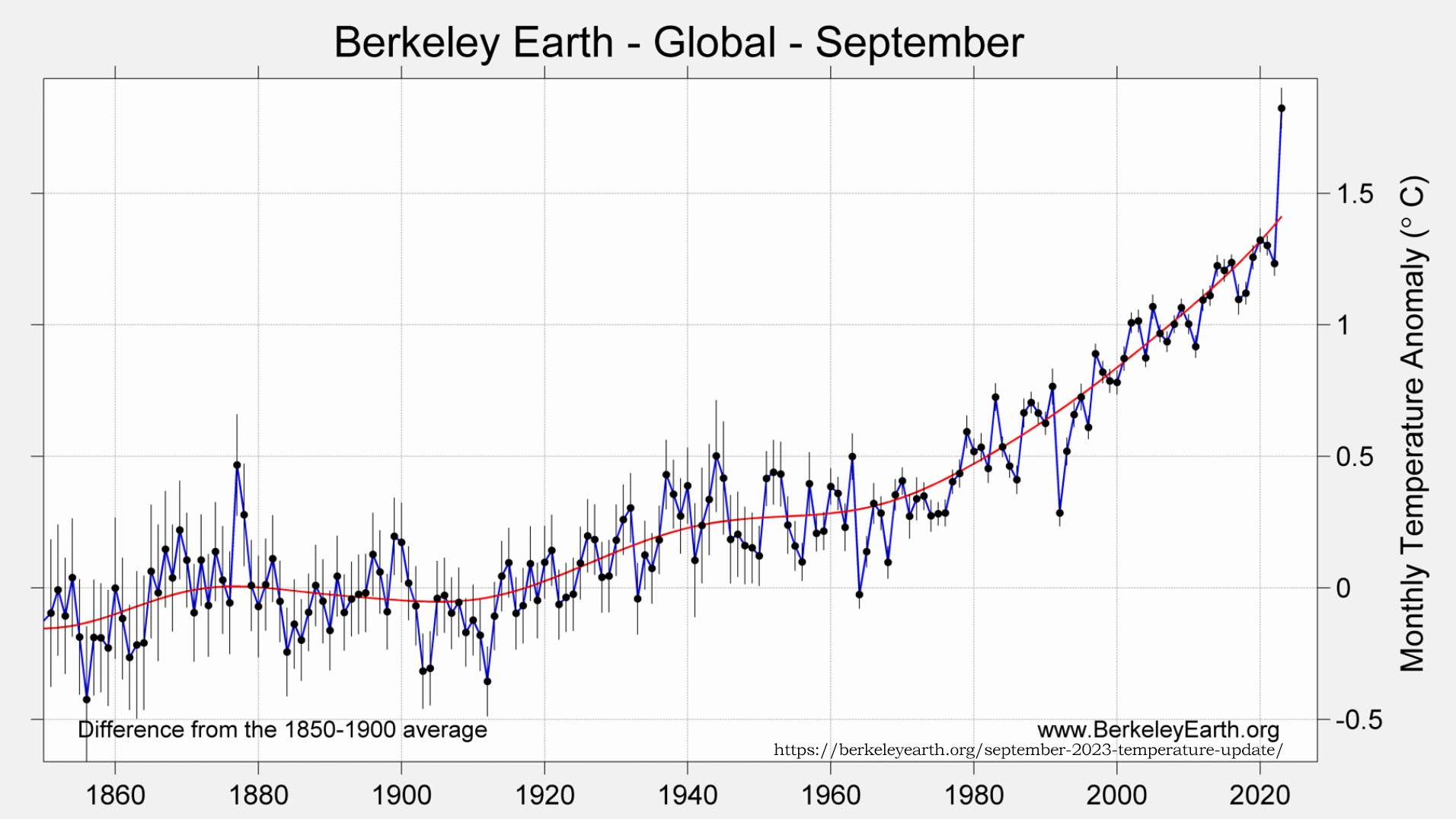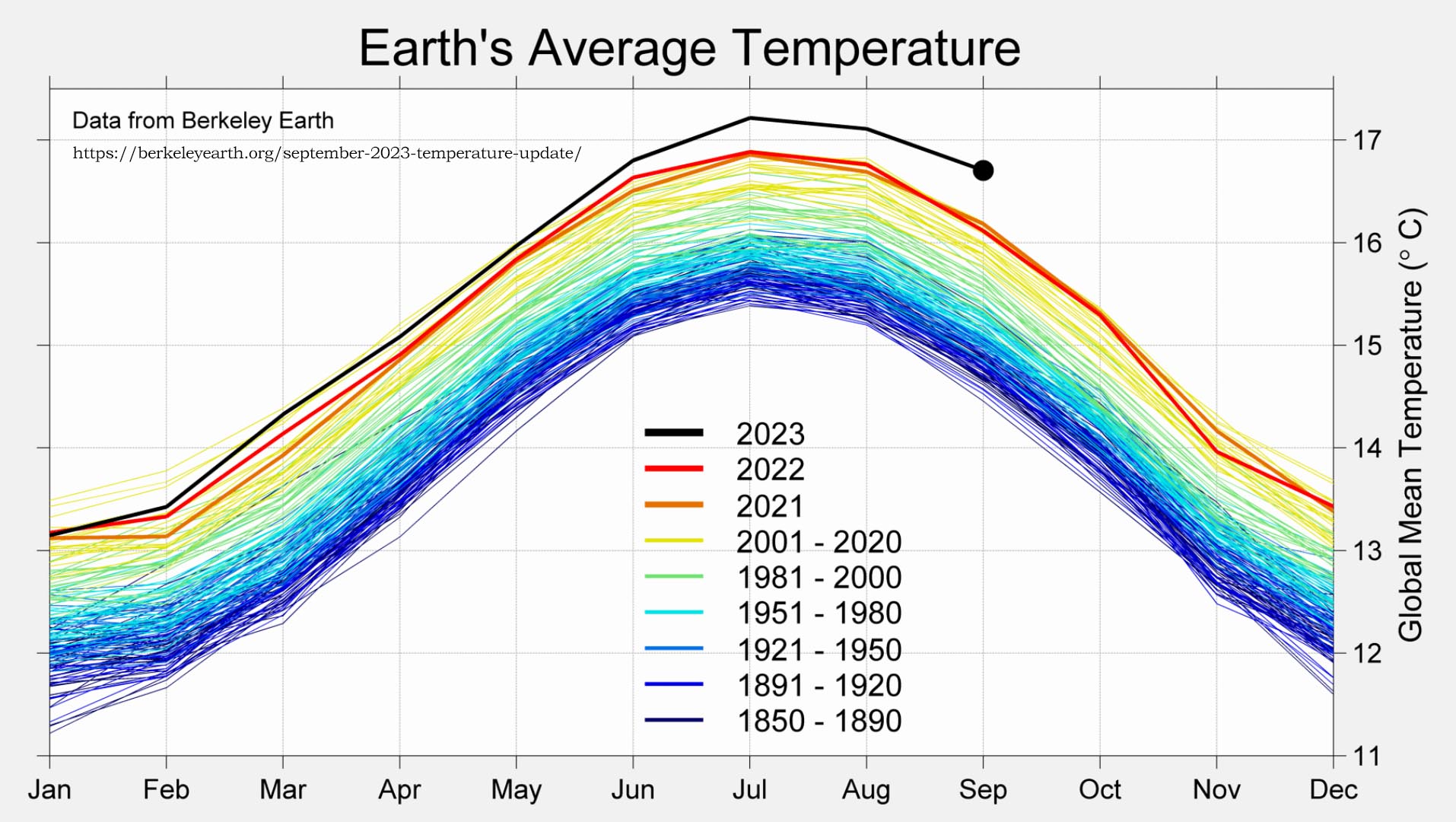
Berkeley Earth Temperature Anomaly for September, 1851 to 2023
“Gobsmackingly Bananas” – Berkeley Earth on the 2023 Temperature Jump
September 2023 Temperature Update, Berkeley Earth
First posted at Berkeley Earth, October 11, 2023 by Robert Rohde
The following is a summary of global temperature conditions in Berkeley Earth’s analysis of September 2023:
- Globally, September 2023 was the warmest September — and the largest monthly anomaly of any month — since records began in 1850.
- The previous record for warmest September was broken by 0.5 °C (0.9 °F), a staggeringly large margin.
- Both land and ocean individually also set new records for the warmest September.
- The extra warmth added since August occurred primarily in polar regions, especially Antarctica.
- Antarctic sea ice set a new record for lowest seasonal maximum extent.
- Record warmth in 2023 is primarily a combined effect of global warming and a strengthening El Niño, but natural variability and other factors have also contributed.
- Particularly warm conditions occurred in the North Atlantic, Eastern Equatorial Pacific, South America, Central America, Europe, parts of Africa and the Middle East, Japan, and Antarctica.
- 77 countries, mostly in Europe and the tropics, set new monthly average records for September.
- El Niño continues to strengthen and is expected to continue into next year.
- 2023 is now virtually certain to become a new record warm year (>99% chance).
- 2023 is very likely (90% chance) to average more than 1.5 °C above our 1850-1900 baseline.

Berkeley Earth, global average monthly temperature anomaly January through December, 1850 to 2023
